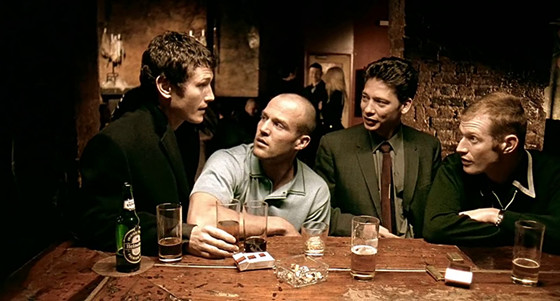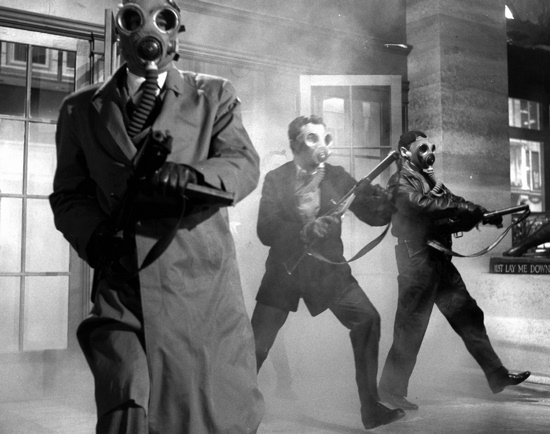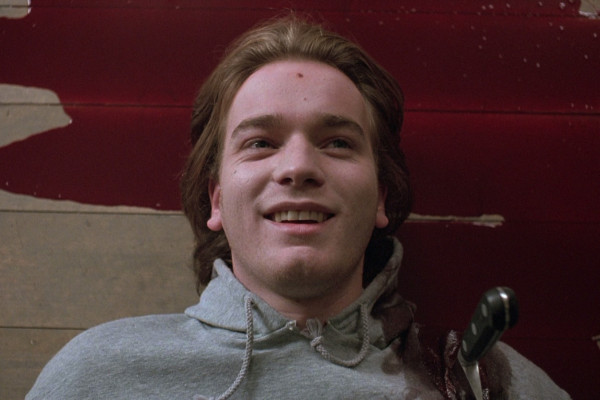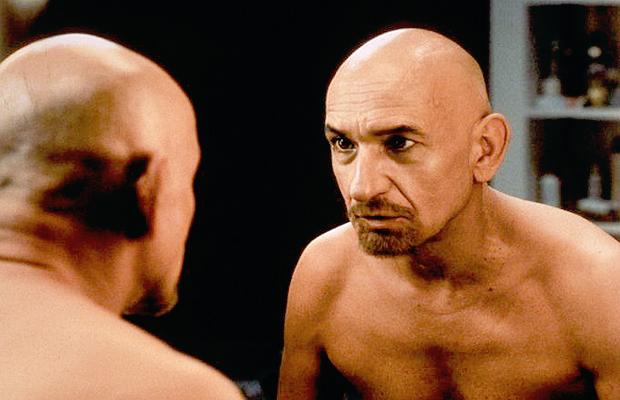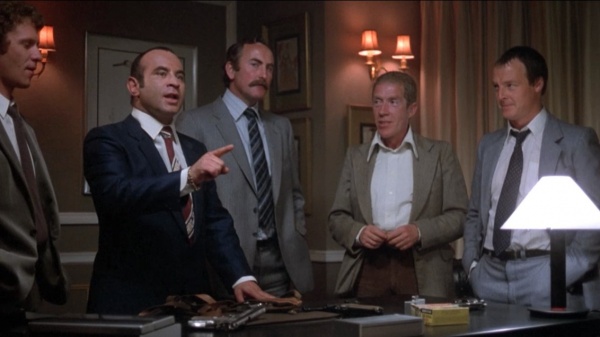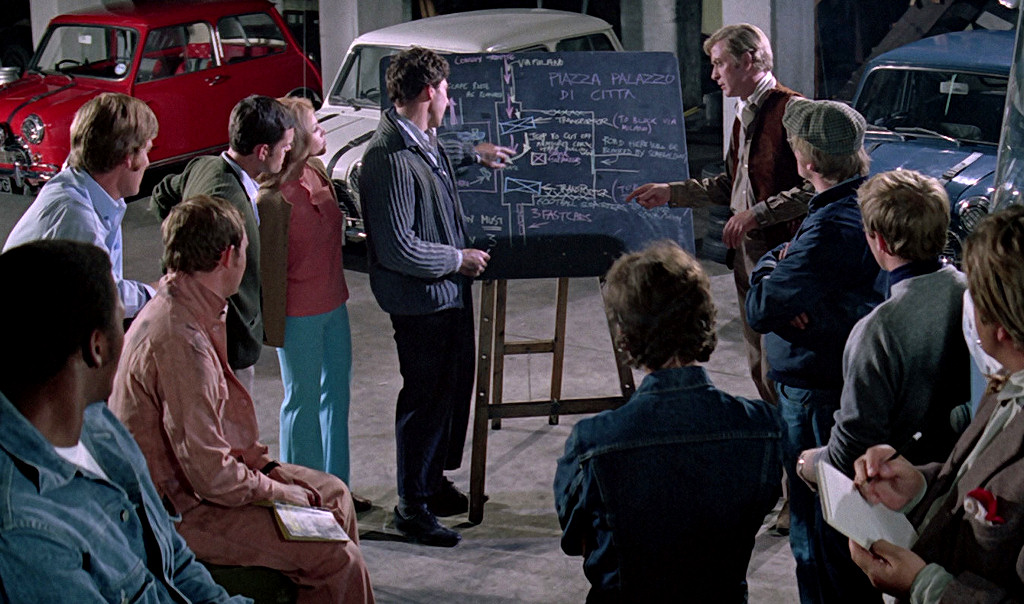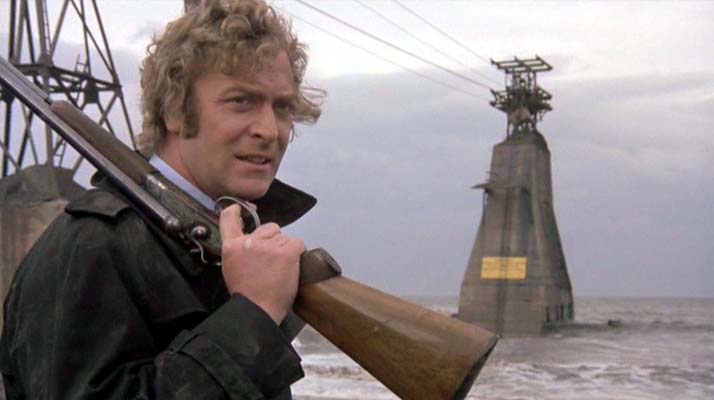8. Lock, Stock and Two Smoking Barrels (1998)
There are few directors more connected to the British crime genre than director Guy Ritchie, so it only makes sense to start the list with his directorial debut Lock Stock and Two Smoking Barrels.
To keep the plot as simple as humanly possible, Lock Stock is all about a botched high stakes card game and the following turn of events that throws essentially all of the London underground into chaos over weed, a truck full of cash and 2 antique shotguns.
The main plot line follows four friends, played by British stars Nick Moran (Harry Potter and the Deathly Hallows Parts 1 and 2), Dexter Fletcher (Band of Brothers, Kick-Ass, and Topsy-Turvy) Jason Flemyng (X-Men: First Class, The Curious Case of Benjamin Button, and Clash of the Titans) and, most notably Jason Statham, (before America discovered and essentially ruined his film career) who find themselves £500,000 in debt to the local crime boss known as Hatchet Harry. (Hatchet Harry is played by British actor P.H. Moriarty, who also stars in another film on this list, “The Long Good Friday.”)
The film contains all of the hallmarks that have come to define the Brit crime genre: a complex yet involving plot, stylistic flourishes ranging from manipulation of slow motion and freeze frames to reverse photography, a great soundtrack, and the always memorable dialogue of Great Britain.
There is something to be said about Ritchie’s use of violence that sets his films apart from most Brit Crime films, from the fact that Ritchie prefers it to be implied in most scenes rather than unapologetic and in your face. Lock Stock would eventually spawn 3 more films that would mark Ritchie as an avid Brit crime director, with the more refined and ambitious “Snatch” (2000), experimental and psychological “Revolver” (2005) and highly stylized “Rocknrolla” (2008).
7. In Bruges (2008)
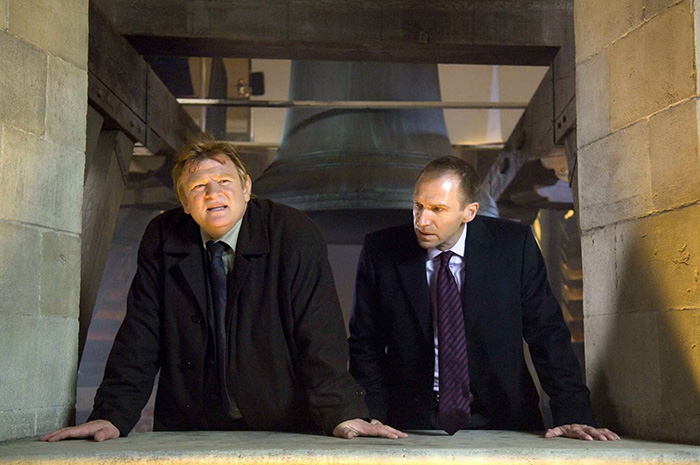
A cult favorite in the eyes of many crime-film fans, “In Bruges” is a film that was advertised as a relatively generic comedy crime caper, when in reality it is anything but.
The initial plot is relatively simple: two British hitmen, (Brendan Gleeson and Colin Farrell), after having a job in England gone bad, are ordered to hide away in a small Belgian town and await orders from their boss (played by Ralph Fiennes). Throughout the course of their stay, both hitmen react to the atmosphere of Bruges (the Belgian town) differently and are forced to confront different parts of themselves and their reasons for being there.
A character driven crime film that walks a fine line between dark comedy and straight forward drama, “In Bruges” is the second film from British director and Playwright Martin McDonagh, whose first film “Six Shooter” won the Academy Award for Best Short Film in 2004.
Known best for its surprisingly dark thematic content, enjoyable dynamic between its 3 leads, intelligent yet humorous dialogue, and memorable use of graphic violence for dramatic effect, “In Bruges” offers a healthy serving of deep character conflict and emotional resonance in addition to all of the more entertaining qualities that most Brit crime films are known for.
6. The League of Gentlemen (1960)
If “The Lavender Hill Mob” is the great-uncle of British crime films, the “The League of Gentlemen” is one of its founding fathers, as well as a fellow founding father of the heist caper film.
A film that deals with post-WWII anxieties and veteran frustrations in its Brit-crime context, “The League of Gentlemen” tells the story of eight WWII veterans coming together to raid a military compound and then rob a bank using the equipment and resources acquired from the former. All eight are men who have all strayed far from the laws and patterns of the normal civilian lifestyle, never being able to re-integrate and assimilate after the war.
More akin to underdog sports films like “Bad News Bears” or “The Replacements” than most contemporary heist films, “The League of Gentlemen” greatest strengths lie in its rock-solid Brit cast and its basic concept of outsiders coming together and using their joint eccentricities to reach a common goal and form a strong camaraderie among each-other. It features all of the classic heist film elements and tropes long before they were ever even acknowledged, and features strong direction from British director Basil Dearden.
5. Shallow Grave (1994)
A cult favorite in the eyes of film enthusiasts and fans of director Danny Boyle, “Shallow Grave” plays more like a Hitchcock thriller than a Brit crime film, but the moral ambiguity of its characters actions and the simple absurdity of its plot places it well among the ranks of Brit crime films.
The film was the first collaboration between Boyle and actor Ewan McGregor’s, as well as Boyle’s first feature film. It sustains its cult following through its super-dark humor, irreverent energy and its start contrasts in depictions of death and dismemberment combined with images of striking beauty and composition.
A heavily loaded film with a relatively simple plot, “Shallow Grave” begins with 3 roommates searching for a fourth resident to live in their spiffy London flat. When their newly moved in 4th roommate is found dead and naked with a suitcase full of cash under the bed, things quickly take a dark and doomed turn as the friends decide to keep the money and dispense with the body.
Loaded with paranoia, greed and perverse character choices that lead to grim consequences for all involved, the films plot shows no shame or restraint in how bad things get, which is ultimately its greatest strength. A film that is twisted, yet fascinating, in how enjoyable it is despite the despicable and morally bent actions of its characters, “Shallow Grave” is a must-see for those Danny Boyle fans and Brit-crime film lovers alike.
4. Sexy Beast (2000)
An underrated film in an under-appreciated genre, “Sexy Beast” is a film that truly has to be seen to be fully understood and appreciated. It is a Brit Crime Caper through and through, and excels thanks to the charged dynamic between its two lead actors, Ben Kingsley and Ray Winstone, and the inventive vision of its director, Jonathan Glazer.
The story begins with long retired ex-gangster “Gal” (Winstone) living a life of luxury in Spain with his ex-porn star wife, DeeDee (Amanda Redman). The peace of retirement is swiftly lost when Gal is paid a visit by the insane and volatile Logan (Kingsley), an old friend and fellow con from London. Logan wants Gal to come back to London with him to help his boss Teddy (Ian McShane) pull off the always classic “last big heist.” When Gal declines, tensions between him and Logan quickly begin to mount and explode as the two clash with each other as Logan tries to persuade Gal back into the life.
Remembered less for its plot and almost entirely for the fireworks between its two lead actors and the machine-gun firing, swear-loaded dialogue that they (well, mostly Kingsley) spout out at each-other, “Sexy Beast” remains an underrated gem in the world of Brit-Crime films and contains one of Ben Kingsley’s most memorable performances to-date.
3. The Long Good Friday (1980)
A fascinating character study as well as a political allegory for England in the following decade, “The Long Good Friday” is as close to a masterpiece as British crime films can get.
The film stars the late Bob Hoskins in the lead role of Harold Shand, a gangster with the desire to make his illegitimate businesses legitimate by purchasing tons of London dock real estate to host the next Olympics. Things begin to rapidly decline and fall apart for Shand when his life begins to become continually threatened by an enemy whose identity he does not know.
A Shakespearean tragedy of the most Cockney sort, “The Long Good Friday” has left a legacy thanks to the headstrong yet intensely restrained performance of its lead actor and the fascinating glimpse into the perspective of the character he inhabits. The film is notorious for its shocking final scene and the complexity of the performance that Hoskins brings to the screen, and remains a landmark in British film culture and film history.
2. The Italian Job (1969)
A Michael Caine Brit classic, “The Italian Job” is definitely more of a “Comedic Heist Caper” than a straight crime flick, but it is a Brit Crime film nonetheless.
An icon of British culture and hipness in the 60’s, the film follows Caine as Charlie Croker, an ex-con fresh out of jail and immediately back in the game to steal millions in gold in Italy. The film features all of the tropes that one would hope for from a heist movie, from the “planning the heist” montage to the eccentric motley crue of cons to the always cool mastermind as portrayed by Caine’s Charlie Croker.
Aside from its cultural relevance, influence on later heist films, and its iconic lead character, “The Italian Job’s” legacy is most cemented by its climactic mini cooper chase scene throughout the streets of Rome, its soundtrack from Quincy Jones and its unexpected but nonetheless memorable ending.
1. Get Carter (1971)
One of the forefathers of the Revenge Crime sub-genre, “Get Carter” is best remembered (and oft-poorly imitated, yet rarely equalled) for its iconic lead character, signature premise, and the elegant yet effortless coolness that it brought to British filmmaking in the 70’s and the crime genre as a whole.
In the film, the always enigmatic Michael Caine plays the title role of Carter, an un-phased and brutal gangster who is forced to return to his home town of New Castle in order to investigate the mysterious death of his brother. As he beats, bruises and shoots his way through the New Castle underground, Carter is ultimately confronted by the corruption, betrayal and horrid truth behind his brother’s death and the man responsible.
“Get Carter” would go on to spawn dozens of copycats, imitators and a remake in an attempt to re-create its undeniably cool yet brutal tone and surprise ending, with few to none ever truly hitting the mark or surpassing it. Its also most noted for its funk score composed by Roy Budd, which would go on to influence numerous other British films throughout the 70’s.
Author Bio: Marcus O’Leary is an independent filmmaker and writer currently residing in Philadelphia, PA. When he is not obsessing over filmmaking and movies, he is usually running or cooking food.
